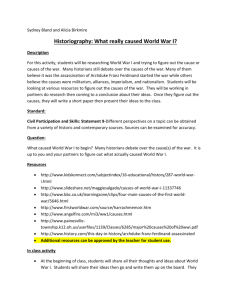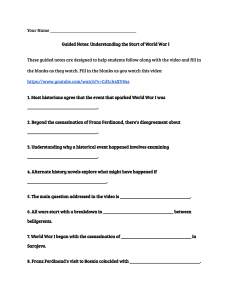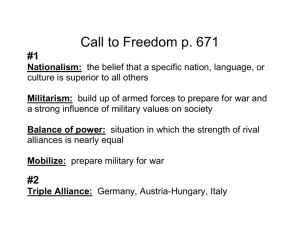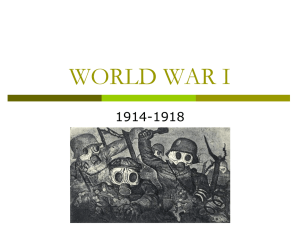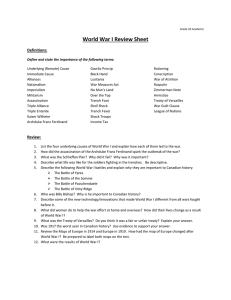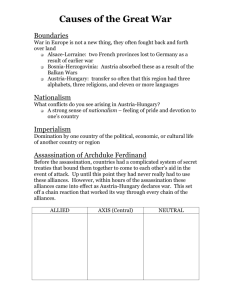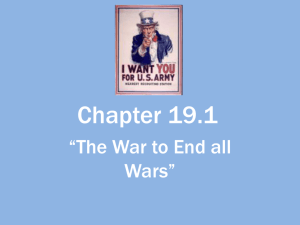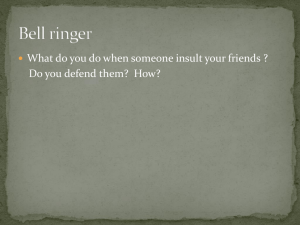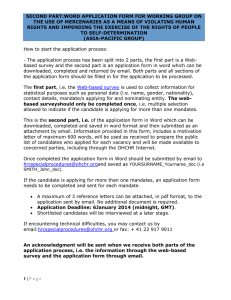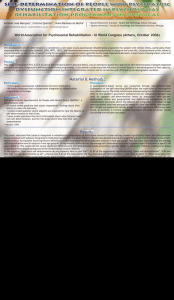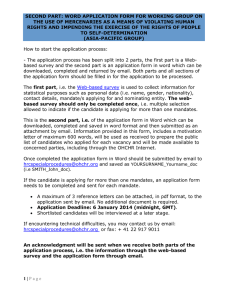AP World History
advertisement
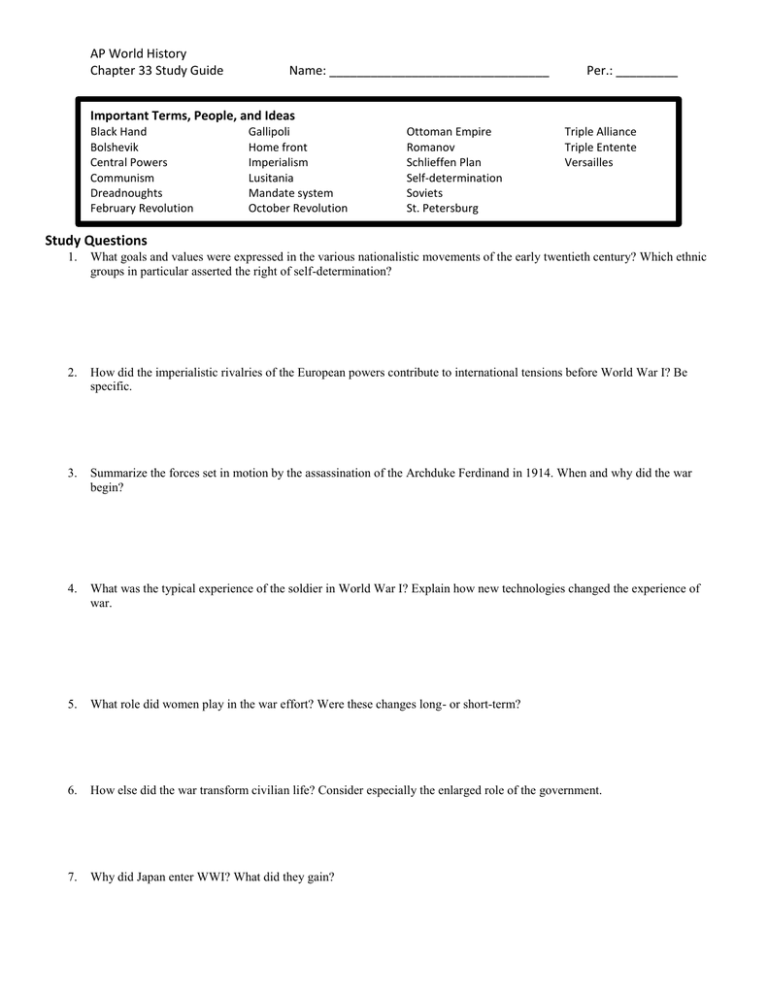
AP World History Chapter 33 Study Guide Name: ________________________________ Per.: _________ Important Terms, People, and Ideas Black Hand Bolshevik Central Powers Communism Dreadnoughts February Revolution Gallipoli Home front Imperialism Lusitania Mandate system October Revolution Ottoman Empire Romanov Schlieffen Plan Self-determination Soviets St. Petersburg Triple Alliance Triple Entente Versailles Study Questions 1. What goals and values were expressed in the various nationalistic movements of the early twentieth century? Which ethnic groups in particular asserted the right of self-determination? 2. How did the imperialistic rivalries of the European powers contribute to international tensions before World War I? Be specific. 3. Summarize the forces set in motion by the assassination of the Archduke Ferdinand in 1914. When and why did the war begin? 4. What was the typical experience of the soldier in World War I? Explain how new technologies changed the experience of war. 5. What role did women play in the war effort? Were these changes long- or short-term? 6. How else did the war transform civilian life? Consider especially the enlarged role of the government. 7. Why did Japan enter WWI? What did they gain? AP World History Chapter 33 Study Guide Name: ________________________________ Per.: _________ 8. What factors caused the Russian Revolutions in February and October of 1917? What changes emerged initially from these revolutions? 9. How did Lenin and the Bolsheviks come to power? 10. When and why did the United States enter the war? What did this move mean? 11. What was the intent of the League of Nations? What were the weaknesses of this body? 12. How did the mandate system work in the Middle East? Who profited most from this system? Inquiry Questions 13. Was World War I a preventable war, or were the nations of Europe committed to fighting even before the assassination of the Archduke Franz Ferdinand? Can you envision a realistic scenario by which the outbreak of war might have been averted? 14. What were the essential elements of Woodrow Wilson's peace program? Which of his Fourteen Points were included in the final peace treaties? Why was it so difficult to implement his vision?
